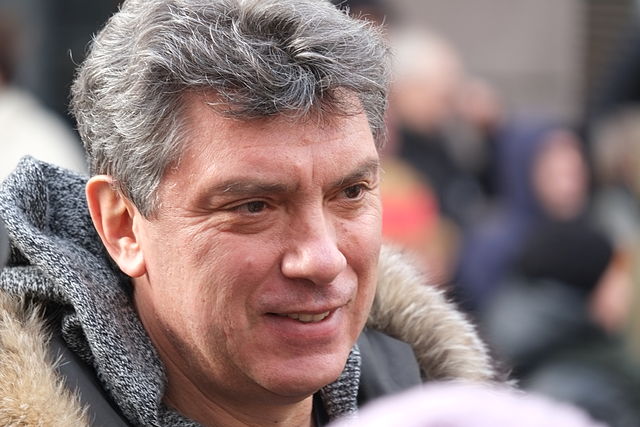
Russia’s Former Deputy Prime Minister Explains to Ukrainians Why His Government Has Invaded Their Country Again
With Russia again having escalated its war on Ukraine last month (sending in paratroopers from its 76th and 98th Airborne Divisions, plus armor and artillery), few are asking what is really driving the Kremlin’s military campaign in Ukraine’s southeast.
Boris Nemtsov, Russia’s former deputy prime minister and a leading opposition politician, writes this week on the independent Ukrainian news website Ukrainska Pravda that Russian President Vladimir Putin is prosecuting this war to preserve his own position in power – and to avoid winding up in jail. Writing as a Russian to his Ukrainian readers, Nemtsov declares, “This is not our war, this is not your war, this is not the war of 20-year old paratroopers sent to Ukraine. This is Vladimir Putin’s war.”
Putin this week called for “statehood” for southeastern Ukraine – a significant rhetorical escalation of his previous demands for autonomy in that region within a more de-centralized, federalized Ukraine. While Putin’s spokesman, Dmitry Peskov, walked his boss’s statement back, saying that “statehood” was not a call for a new state, Nemtsov writes that Putin finally made public his real goal, to “create in the east of the country a puppet state, Novorossiya, that is fully economically and politically controlled by the Kremlin.”
One Putin Target: Ukraine’s Economic Assets
(Nemtsov notes a “hypocrisy” in Putin’s frequent calls for federalization in Ukraine, given Putin’s opposite policy in his own country. It’s an attempt to “impose on Ukraine and its people that, which Russian citizens are deprived of because Russia itself has not had any sort of federal state since 2004,” he writes.)
Putin’s reference to the region as “Novorossiya” (“New Russia”) underscores its past, in the 1700s and 1800s, as a territory of the tsarist Russian empire. It also is important to Putin as the heart of Ukraine’s heavy industry. It includes provinces that are home to armament factories that build rockets, tanks and aircraft. The Donbas region, Luhansk and Donetsk provinces, feature steel and chemical plants as well as vast coal fields. Eastern Ukraine also has considerable shale gas deposits, which potentially could create competition for Russia’s state controlled gas company Gazprom, Nemtsov points out.
Russia also wants control of southeastern Ukraine as a land bridge to the Crimean peninsula, which the Kremlin invaded and annexed last spring. With no direct land access to Crimea, Moscow is having difficulties providing the peninsula with goods as basic as drinking water and food, the price for which has risen sharply in the past six months.
Why Ukraine Threatens Putin
Putin’s main goal, preserving his grip on power (and the wealth for him and his closest supporters that comes as a by-product) was directly threatened by Ukraine’s democratic cultural revolution of last winter. The Maidan movement’s massive demonstrations against corruption and for democracy oriented the country firmly toward Europe and away from domination by Moscow. It overthrew a “thieving president” (Viktor Yanukovych) and Putin will do everything to make sure that such ideas are never exported to Russia, Nemtsov writes. “Ukraine chose the European way, which implies the rule of law, democracy and change of power. Ukraine’s success on this way is a direct threat to Putin’s power because he chose the opposite course – a lifetime in power, filled with arbitrariness and corruption.”
Putin now lives in the classic trap of the criminal autocrat, unable to surrender power because he will risk prosecution for his crimes – which in his case includes violating the Russian constitution by sending troops to a foreign state without the approval of the country’s Federation Council. “Putin’s behavior looks like madness, but in fact it’s a cold strategy for life-long despotism,” Nemtsov writes.
By the broadest measure, Putin’s war is not achieving his goals of dominating Ukraine and quashing its move toward European-style democracy and accountability. Having constitutionally defined itself in recent years as a non-aligned state, Ukraine now is looking to get closer to NATO, the Alliance itself is growing stronger and the transatlantic relationship is proving to be durable, Nemtsov writes. But perhaps most importantly, “Putin’s aggression has consolidated the Ukrainian people, and the fight for independence and territorial integrity has become the national idea.”
Irena Chalupa covers Ukraine and Eastern Europe for the Atlantic Council.
Image: Former Deputy Prime Minister Boris Nemtsov, shown at a political rally in February. (Wikimedia/Ilya Schurov/CCLicense)n policies
